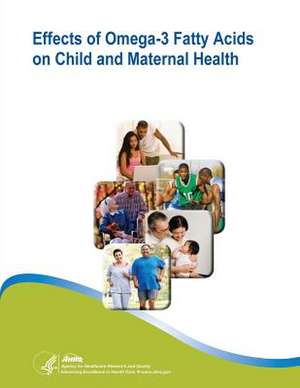Effects of Omega-3 Fatty Acids on Child and Maternal Health
Autor U. S. Department of Heal Human Services, Agency for Healthcare Resea And Qualityen Limba Engleză Paperback
Preț: 239.01 lei
Preț vechi: 251.59 lei
-5% Nou
Puncte Express: 359
Preț estimativ în valută:
45.74€ • 47.97$ • 38.07£
45.74€ • 47.97$ • 38.07£
Carte disponibilă
Livrare economică 11-25 martie
Preluare comenzi: 021 569.72.76
Specificații
ISBN-13: 9781500354695
ISBN-10: 1500354694
Pagini: 442
Dimensiuni: 216 x 279 x 23 mm
Greutate: 1.02 kg
Editura: CREATESPACE
ISBN-10: 1500354694
Pagini: 442
Dimensiuni: 216 x 279 x 23 mm
Greutate: 1.02 kg
Editura: CREATESPACE
